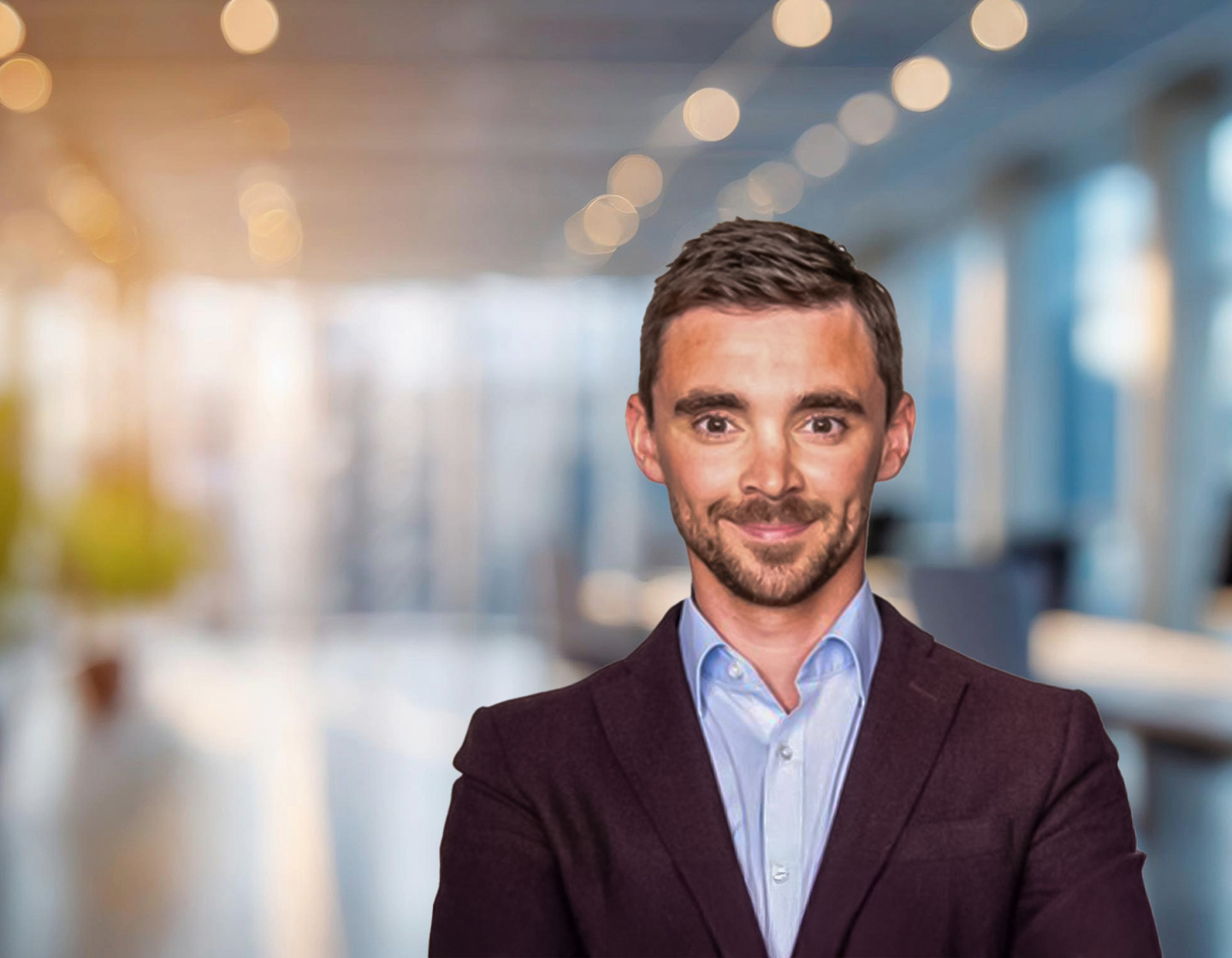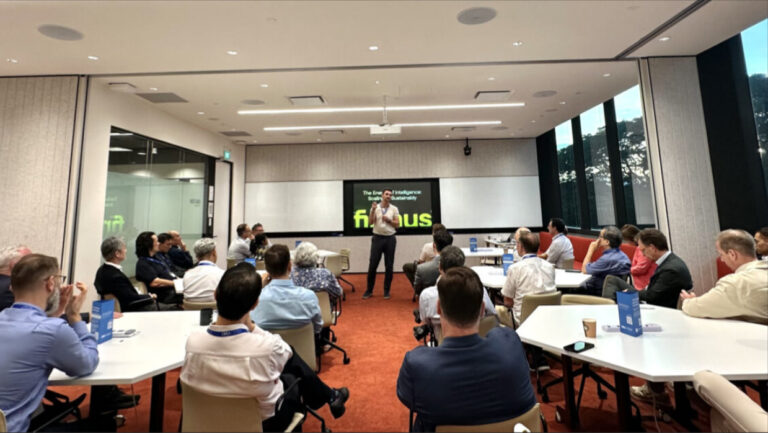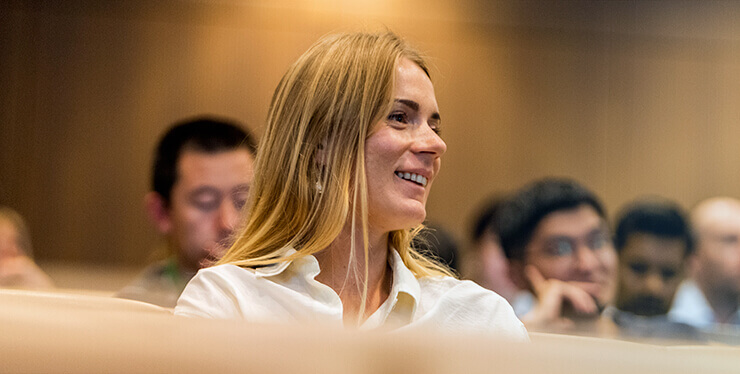
When Daniel Kearney joined Firmus, the company was a high-performance computing firm specializing in advanced cooling and data center systems. Fourteen months later, it is considered a pioneer in energy-efficient AI infrastructure, rethinking how data centers are designed, powered, and scaled for the age of intelligent computing, with a valuation of $3.9bn.
Under his leadership as Chief Technology Officer, Firmus evolved its cooling and software technology into the next generation of scaled AI infrastructure – what the industry calls “AI Factories,” purpose-built large compute environments designed to manufacture intelligence at scale.
Its evolution has been nothing short of extraordinary, reaching what Kearney describes as an inflection point. “It was the case of following steady incremental improvements across several technologies, then hitting that inflection point where these innovations compound and scale the system solution exponentially – the classic hockey stick moment,” he said.
Fueling this rapid acceleration is a network of strategic backers and partners. Firmus secured major investments from several prominent investors, with strong participation from Nvidia, as well as significant interest from Australian institutional investors and high-net-worth individuals. These investors have helped capitalize Firmus and position it at the heart of a global race to build more sustainable infrastructure for artificial intelligence.
Today, the company works with technology partners and infrastructure providers across Australia, the United States, and Southeast Asia, delivering high-performance computing systems designed for both efficiency and scale.
Reimagining infrastructure for the age of intelligence
The company’s rise comes at a time when energy demand for AI computing is at an all-time high. Traditional data centers were designed to host many customers and mixed workloads, optimized for storage and connectivity rather than the intense, synchronized processing that AI demands.
Firmus’s approach flips that model. Under Kearney’s technical direction, the company has reimagined infrastructure from the ground up to meet a fundamental truth: AI’s explosive growth is limited not by algorithms but by electricity.
“AI needs more and more transistors on the chip to scale,” Kearney said. “They just consume more power. Anybody who’s playing the role that’s electrons is always going to be in a very valuable place. And my philosophy is efficiency always wins, whether it’s in business or in technology.”
For Kearney, efficiency isn’t just an engineering principle; it’s a strategic imperative. “Being efficient is about doing more with less. A more efficient infrastructure lowers the amount of capital deployed and ultimately lowers the total cost of operation,” he explained.
“Data centers are not the same as AI factories. AI factories are purpose-built facilities designed from the inside out to support high-powered, GPU-based AI compute. They are engineered in such a unified way – and to such scale – that the building itself functions as the computer.”
Unlike conventional data centers, which host multiple tenants, differing compute instances, and workloads, AI factories operate as one unified fabric where thousands of homogenous GPUs “compute on the problem in unison.”
“It’s a much more fit-for-purpose solution for dedicated AI workloads, including model training, post-training, and inference,” he said. “You think about it like a Formula One car: constructed from the engine out, very aerodynamic, very fast, very powerful, but made for one purpose – to race on a dedicated purpose-built track.”

Building scale with purpose
At the center of Firmus’s expansion is Project Southgate, a national rollout of green AI factories across Australia. This multi-state project will position Australia as one of the biggest producers of AI tokens in the world after the US. For Kearney, it represents both a technical proof point and a philosophical one: evidence that the future of AI doesn’t have to come at the planet’s expense. “We actually believe Australia, as a sovereign nation, can be the second-largest producer of sustainable and cost-performance AI tokens in the world after the US,” said Kearney.
By anchoring AI infrastructure in renewable energy regions, Firmus is turning Australia’s traditional strengths in resource extraction into a digital advantage. “It’s a nice transition from exporting iron ore and uranium to exporting intelligence,” he said.
The implications reach beyond the company. By providing a firm baseload for renewable developers, Firmus is helping accelerate the development of new solar and wind capacity, creating a virtuous cycle between data and energy innovation. For Kearney, sustainability is not just about offsetting impact; it’s about designing systems that make growth itself regenerative.
From physics to purpose
Kearney’s ability to bridge science, strategy, and leadership was forged over a decade in research and industry. A mechanical engineer by training, he earned his PhD and completed postdoctoral research in the thermal management of semiconductors before joining ABB’s corporate research center in Switzerland.
That grounding in energy systems gave him a deep understanding of how efficiency drives progress – an idea that would later become central to Firmus’s model. But the turning point came in 2017 at IMD.
“We had a really interesting talk from a VP at Nvidia on AI and its potential to transform industries like healthcare, manufacturing, and transportation,” he recalled. “For me, that was a lightbulb moment. That’s exactly what I wanted to do in the next stage of my career, to be close to that sector; Cloud and AI.”
The IMD MBA gave him the space to supplement his technical expertise with executive leadership capacity. “IMD is a great place to develop self-confidence, to experiment, to establish a new secure base, and then execute with absolute conviction,” he said.
After completing the program, he pivoted from hardware research to cloud computing, joining AWS in Zurich and eventually leading the Solution Architecture Enterprise business in Southeast Asia before moving to Firmus. The progression may look linear, but Kearney sees it as an evolution in mindset.
“It feels like I’ve been doing a series of apprenticeships throughout my life,” he said. “And now, I’m kind of reaping the rewards.”
Leading through acceleration
Rapid growth, Kearney admits, has brought both pressure and purpose. “We went from start-up to a $3.9bn valuation. There’s a pressure associated with the actual expectation of what the promise is – but we believe we are match fit.”
As Firmus scales, Kearney has had to adapt his leadership style to match the company’s velocity. His approach mirrors the systems he builds: connected, high-throughput, and efficient. “I literally say to my team, I want our communication to operate with high throughput and low latency, just like our AI systems.”
That blend of technical analogy and human connection defines his leadership ethos. “Get comfortable being uncomfortable,” he advised. “I feel like doing hard things is the best thing you can do. It’s the only place you should live, because otherwise there’s no growth.”

A secure base for lifelong leadership
Even as Firmus accelerates globally, Kearney remains anchored to his IMD community, both as a source of reflection and renewal. He is set to become President of the IMD Alumni Club of Singapore, a role he views as an extension of the same collaborative mindset that drives his company.
“I go to all the reunions that I can,” he said. “It’s much more about the broader IMD ecosystem. I see a lot of power in the alumni network, but like anything, you’ve got to proactively work at it – and you’ve got to reach out to people.”
That philosophy of connection underpins his view of leadership: growth and success are collective, not solitary. “I don’t see this macro trend going away. Our scale will grow; our capability will grow. We believe the technology that we’re developing will be the status quo in the future.”
For Kearney, sustainable growth, whether personal, organizational, or technological, depends on marrying ambition with responsibility. “We shouldn’t scale at any cost,” he said. “We can do it in a way that’s meaningfully better. It’s still competitive, but purposeful.”


